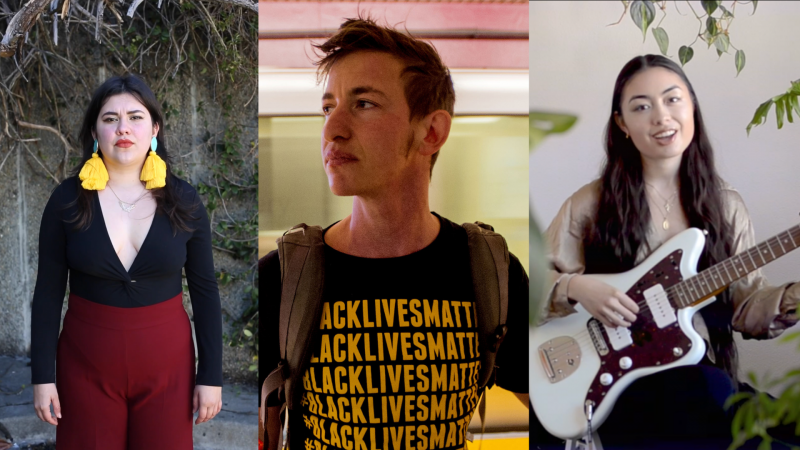Eileen Sho Ji, singer-songwriter
“Better Days”
What are your hopes for a post-COVID-19 world?
I hope for all of us to become more deeply connected to one another, especially since we’re all collectively isolated experiencing this phenomenon together at the same time. It would be nice to come together in a post-COVID-19 world with a shared sense of acceptance of one another, like, “Hey, you went through this thing too!”
In an “in-the-middle-of-COVID world,” as well as a post-COVID-19 one, it would be nice for the concept of “affording survival” to not be a thing, for housing and healthcare to be viewed as basic human rights and be free for all, for our government to stop valuing corporate profit over human life. Until that day comes though, I just hope we can all continue being there for each other as much as possible.
How does your artwork translate that?
My artwork translates that hope by putting it into words in the lyrics. We get caught up in concrete survival trying to meet our basic needs. And then once those are met, we’re faced with this abstract idea of an additional productivity that’s used to determine our self-worth. Meanwhile, we’re literally just animals on a rock in space.
What’s a piece of encouragement you’d like to share with the Bay Area creative community as we cross the one year anniversary of COVID-19?
Keep doing what you’re doing! Whatever that looks like for you. So many people have been creative powerhouses during the pandemic, leveling up their craft, adapting their craft to the current conditions in really creative ways. And a lot of us are also just trying to get through each day and taking things slower. It takes a lot to just get out of bed some days and that’s OK—it’s all OK. Everything is enough. Pandemic or not, I would just like to encourage everyone to remember to be kind to themselves and not place too much pressure on themselves to create or to do anything. We’re so much more than what we do or make.



